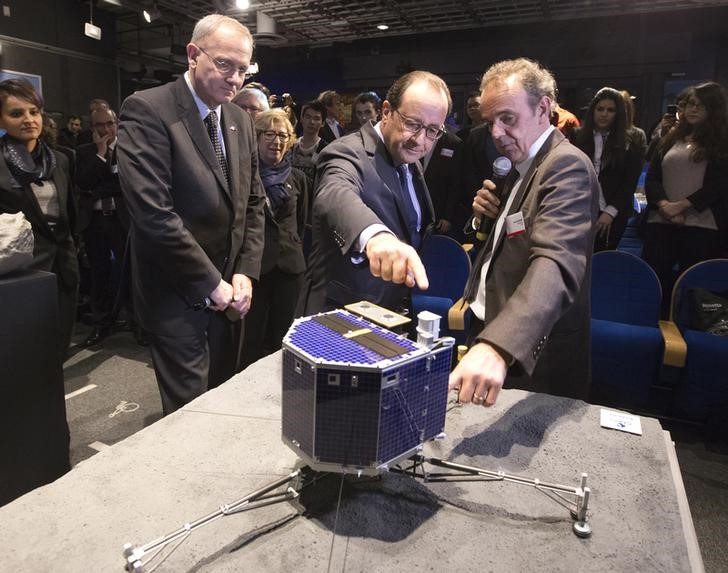By Victoria Bryan
BERLIN (Reuters) - European scientists will send a command into space on Sunday to try to move and restore contact with the comet lander Philae that has fallen silent since the summer.
After coming to rest in the shadows when it landed on a comet in November, Philae woke up in June as the comet approached the sun, giving scientists hope that the lander could complete some experiments that it had not done before its solar-powered batteries ran out.
But the lander has not made contact with its Rosetta orbiter since July 9 and the teams on earth believe it may have shifted position again.
Scientists at the European Space Agency project also reckon that one of Philae's two receivers and one of its two transmitters are not working, while the others are not functioning smoothly.
A weak signal detected during the night of Dec 21 didn't prove to be a definite sign of life from the lander, the DLR German Aerospace Centre said in a statement on Friday.
Because comet 67P/Churyumov-Gerasimenko is moving away from the sun, scientists expect conditions on the comet will prove unsuitable for the fridge-sized robotic lab from the end of January.
They will therefore on Sunday try to move the lander by spinning the flywheel that helped to stabilise it during its descent and landing on the comet, which is travelling as fast as 135,000 kph.
"In the best case scenario, Philae will shake itself free, dust on the solar panels will fall off and the lander will be pointing towards the sun," Koen Geurts from the lander control team at the DLR said in a statement.
The scientists admit the chances of success are small. "Time is running out, therefore we want to try all possibilities," Philae project leader Stephan Ulamec said.

While Philae did not have as much time as initially hoped after landing for experiments, information it has collected is reshaping thinking about comets.